The lasting influence of missionary nurse Florence Nelson
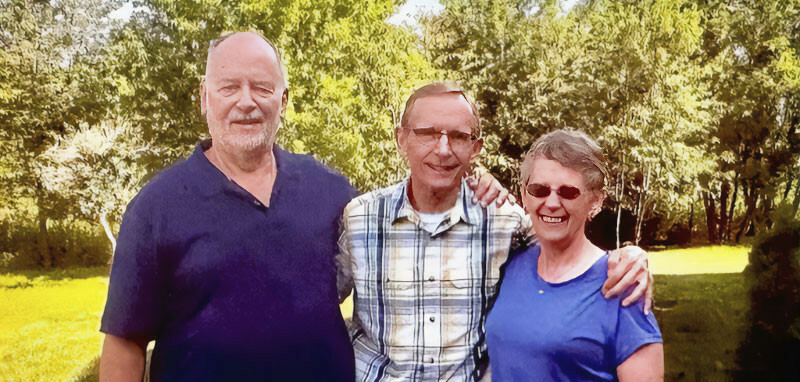
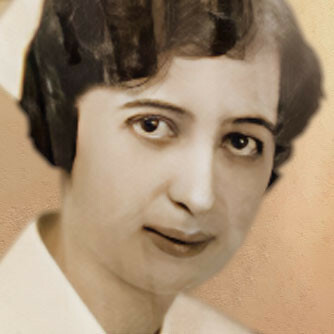
A couple of months ago, we were contacted by Dan Lundblad from Pennsylvania. He had a rather unusual request: whether we could find a copy of his mother’s degree, who studied at the Institute of Tropical Medicine in 1935. We found the request so intriguing that we decided to dig deeper. We connected with her children —Dan, Janet, and David Lundblad—through online conversations, and welcomed Dan and his wife Joan last May at the ITM premises. As they talked about their family history, a narrative of love, dedication, and generational impact unfolded.
How did you end up contacting us?
Dan Lundblad: I was making plans to go to Rwanda with my son and wanted to stop in Belgium to visit Ostend and Bruges. Looking at the practicalities, it became clear to me I could go to Antwerp as well, to see where my mother had studied. So, I contacted ITM and ended up corresponding with you.
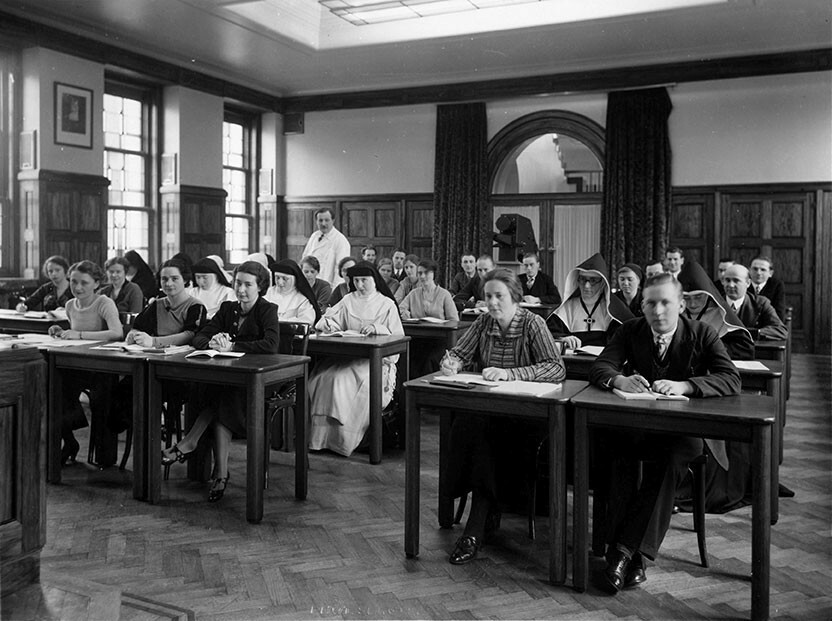
Your mother was a missionary, working for a protestant church. We have some pictures of the students in the 1930ies, showing a mix of Catholic sisters and young women wearing ordinary clothing. We never considered that the latter could be missionaries as well. Why did your mother decide to go to Africa? Did the church send her, or was it out of personal interest?
Janet: Our mother grew up in Nebraska, and as her faith grew, she really felt that God was calling her to be a missionary. Our denomination (Covenant) at that point had missionary work in China, so that’s where she thought she would go. However, one of her postgraduate assignments was to work at Cook County Hospital in Chicago that took in patients from all over Chicago, from many cultures. She had some encounters there which made her wonder whether God was saying she should go to Africa. And at that point, the Covenant was actually thinking about going there, because China was looking more and more precarious for expats. When the Covenant began their work in Africa, mom’s heart was ready to say yes.
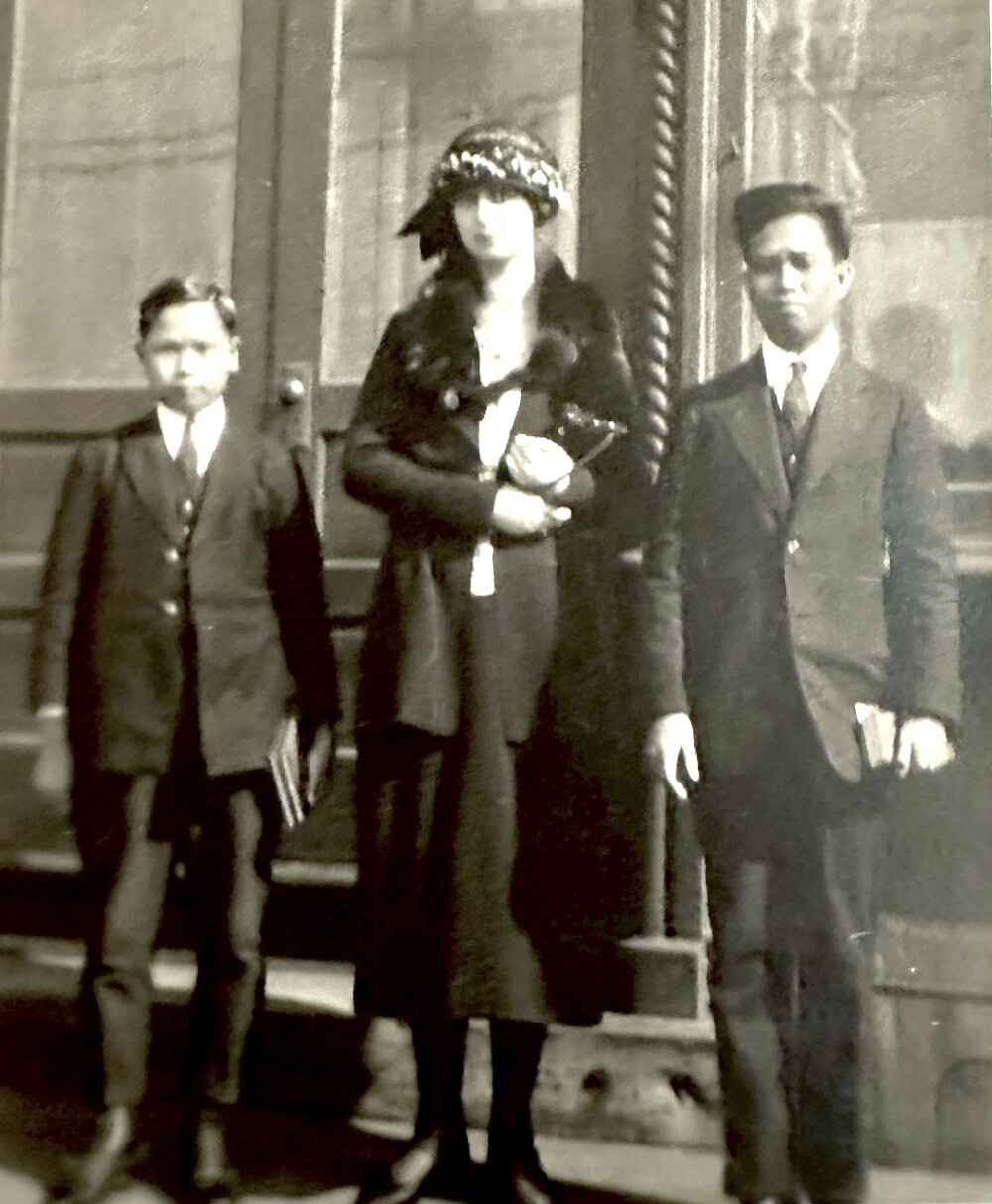
She ended up at the Institute of Tropical Medicine, studying at the ‘Cours Inférieur’, aimed at nurses, missionaries, and agents sanitaires (government officials). It was amazing to read her descriptions of the former teachers and professors at ITM. Do you have any other recollections of her time at ITM?
David: When mom told us about the course at ITM, she felt like she started studying medicine all over again because tropical medicine was totally different to what she had when she was a nurse in the Chicago and Omaha, Nebraska hospital. She realised it was a whole new world she had never encountered before.
Dan: She says at one point in her letters that she spent a lot of time leaning over a microscope looking at these slides trying to figure out what diseases were present in the samples. I think that a lot of the final exam she had to do dealt with microscopic work.
Janet: My mother spoke about some of the other students, some staying at the Y.W.C.A. in Antwerp like her, and how they were also missionaries. But she was sad that she was the only one of the missionary group to successfully complete the course, which saddened her.
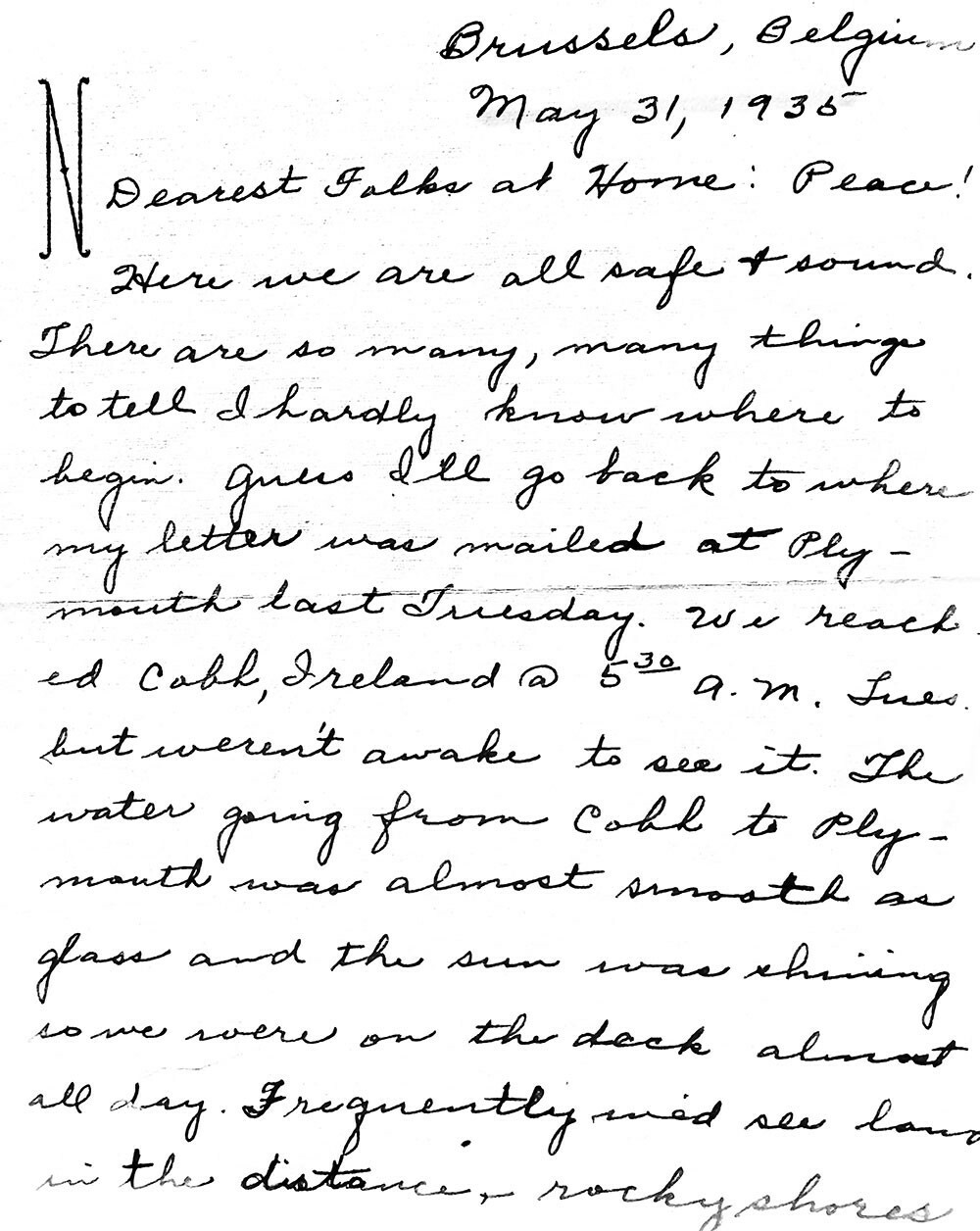
When your mother went to Congo, she ended up at the mission station in Karawa, Northern Ubangi, where several missionaries had fallen ill and had to return to the US. Did your mom and dad meet in Karawa?
Janet: Dad was a pastor. The story is that when dad arrived at Karawa, mom was already there for two and a half years. He got off the boat on the Ubangi River and the missionaries were excited to have a new colleague arrive. Mom extended her hand and said: “Mr. Lundblad, I presume?” (All laugh – ed.) They got married in Nebraska, in our mother’s hometown, in May of 1941.
Dan: My understanding is that dad built the dispensary at the Gbado mission station. When our family went further north to Wasolo, where he built another dispensary. My mom was even involved in surgery when she was at these dispensaries.
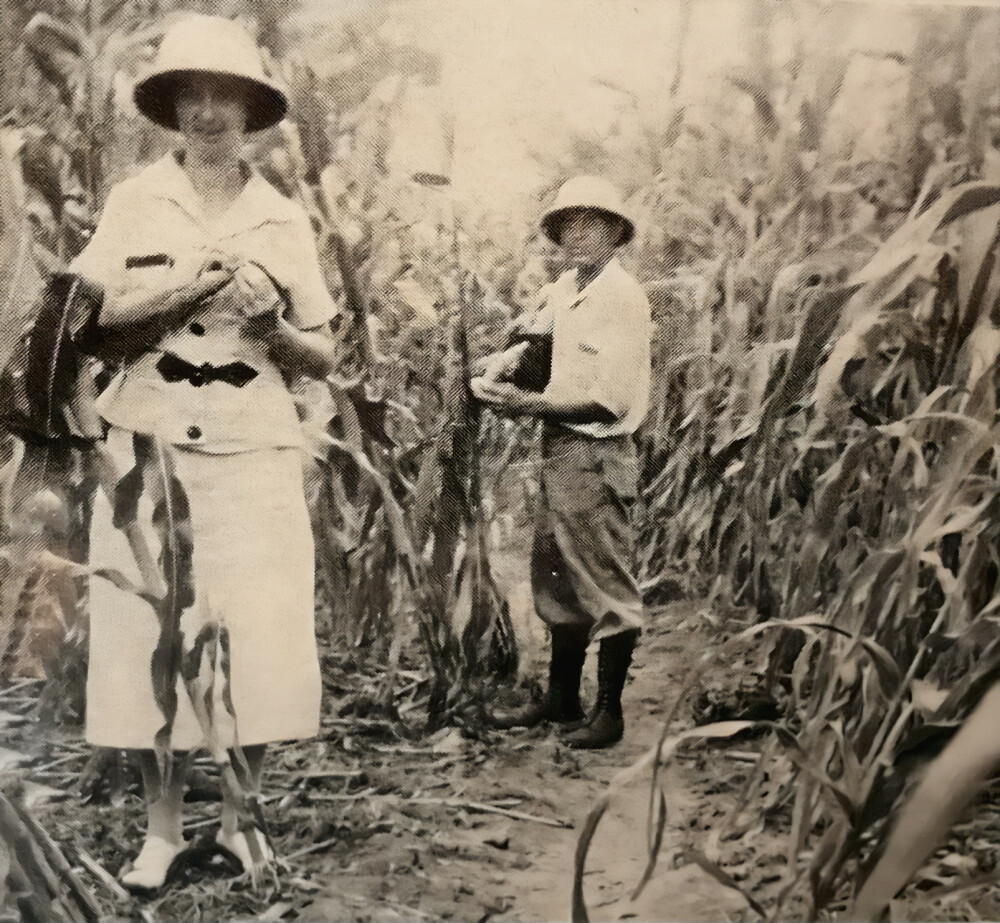
There are many stories about people with basic or complementary medical training having to perform tasks which are normally carried out by doctors.
David: Even though she wasn’t trained as a surgeon, she felt that she had to do something. Dad would be standing next to the operating table with a big Coleman pressure lantern because they had no electricity, while she was doing surgery. It sounds like something out of a Hollywood movie.
Janet: I was back in Congo after my graduation from college and was a teacher in a Congolese high school. I happened to cut my leg and had a fairly big gash. I realised washing was not going to be sufficient. I went to a local hospital and a young Congolese nurse stitched me up, gave me whatever antibiotic I needed. As he was working, I asked him where he had learned his trade. He said he had gone to nursing school at Karawa. I told him that’s where my mother had started the training for nurses! That was so wonderful to hear.
Dan: We would have people come to our home in Congo day and night. They came to mom for medical needs, and to dad as a pastor. After our evacuation in 1960 (Congolese independence - ed.), our father had to stay behind to take care of the mission and for the most part, the people respected that. When I went back to Karawa two years ago, the house that my dad built in 1956 is still there, and the hospital has grown. It is exciting to see the number of nurses at the school that my mom started.
That speaks of the legacy of your parents.
Dan: … And the legacy of ITM, in terms of that’s where my mother learned and was able to teach some of her skill to the Congolese.
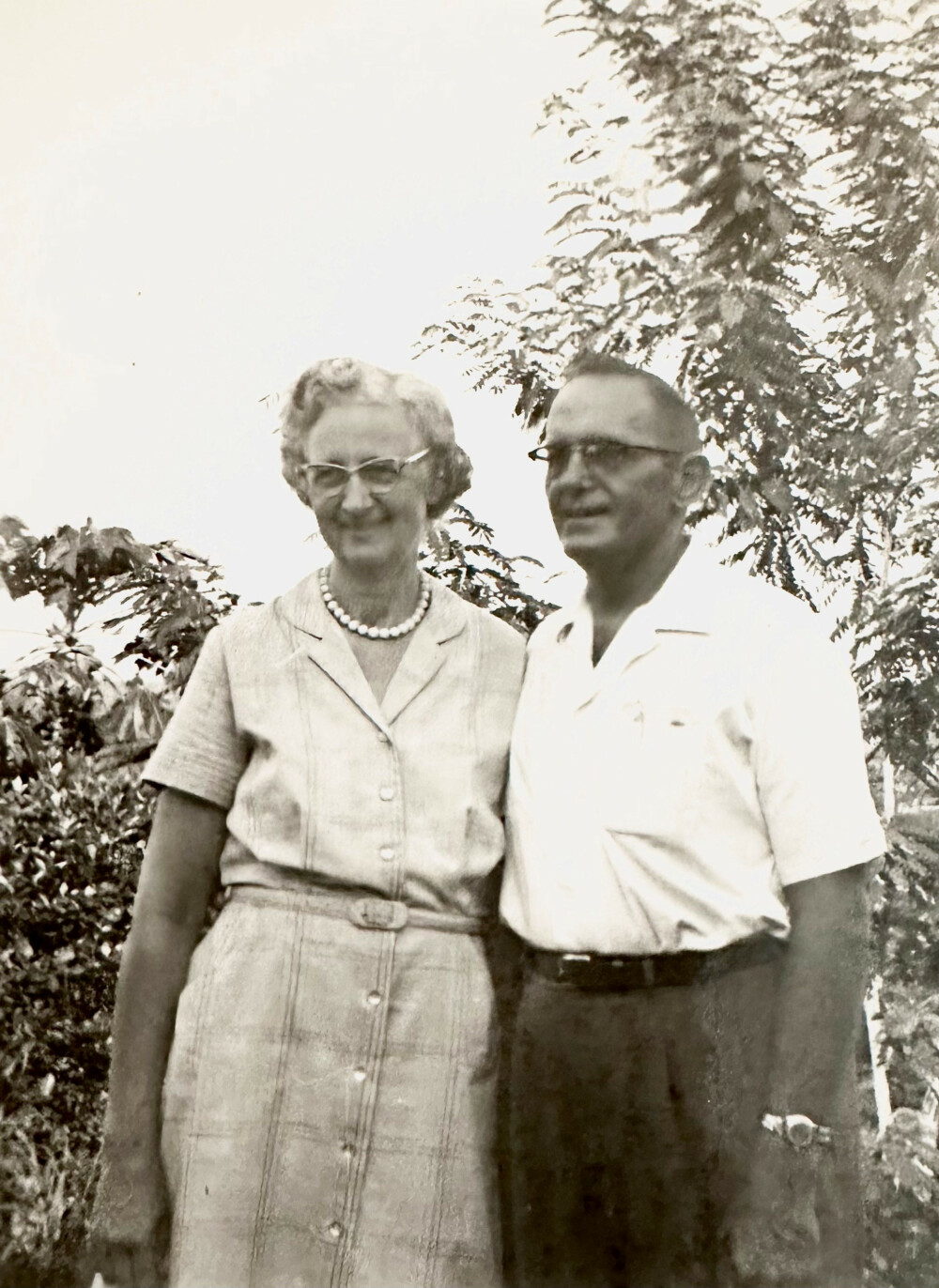
Your mother was clearly an inspirational woman. How has she inspired you personally in your life?
David: I didn’t always think about it while growing up, but today I have a great admiration for her tenacity, her focus. Because of her, I wanted to become a nurse myself. Unfortunately, that didn’t work out and I became a travel agent instead.
Janet: Again, tenacity. The encouragement to move ahead when I had a challenge in front of me. She was curious to learn about new things, new ways and new cultures. For example, I didn’t know I could teach a class at college. And she would say: “Yes, you can, with Christ’s help you can do this.” I went on to Seminary and became a pastor, and after that moved into chaplaincy at a hospital, to be with suffering people and support the families and staff. My mother was there to guide and encourage me along the way. Her love was so expansive - for us as family and for those she met and worked with. And most of all, I am inspired by her deep-seated faith in God. Her trust in God brought her through many challenges.
Dan: Mother’s love for the Congolese people brings up all kinds of emotions in me. She had a deep love for the children. We would drive from one mission station to another, and mother had people who loved her in every place. And everywhere people wanted to give her gifts, which she always accepted, out of love.
As we were growing up, the thing that bothered me the most was that we were isolated from the Congolese villages. The mission station was built usually on top of a hill, separated from the village. When I graduated from high school, I knew I wasn’t an American identity-wise because I was raised in Congo. At 18 I thought: “Well, maybe I am a Belgian.” So, I travelled to Brussels and went to the Alliance Française for nine months and lived there. I worked in Delhaize Le Lion as a stock boy, and really grew to love the Belgian people.
I really wanted to go to the Université Libre de Congo, and I did. I started living with my uncle. But I finally said I wanted to live with the Congolese people. So, I was the only white man living in the dormitory with all the Congolese men and women. I remember one day someone coming up to me and saying: “Daniel, you need a woman to keep you warm.” And I said: “No, I have blankets, thank you.” (all laugh – ed.) That was a wonderful year for me, and I made some great friends.
That deep love really came from my mom, and as a result I went into becoming a social worker myself. Now I am working as a Christian counsellor.
ITM and colonialism
Much of Florence's story takes place during the time Congo was colonised by Belgium. Today, ITM strives for equality, diversity and solidarity.
ITM Heritage Fund
Would you like to support the ITG Heritage Fund? Your donation enables us to restore, conserve and digitise the ITG's historical collection of movable and immovable heritage.
Spread the word! Share this story on









